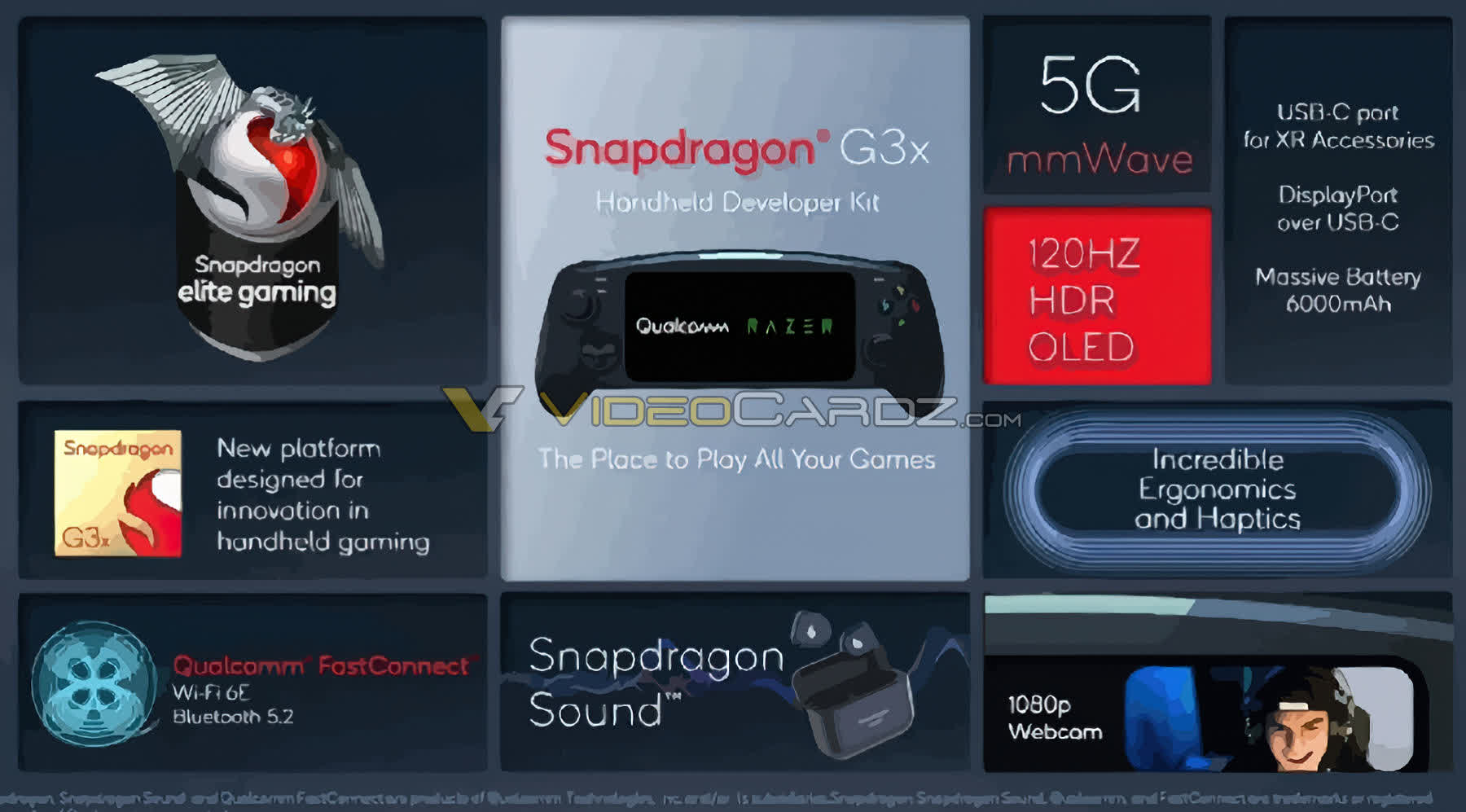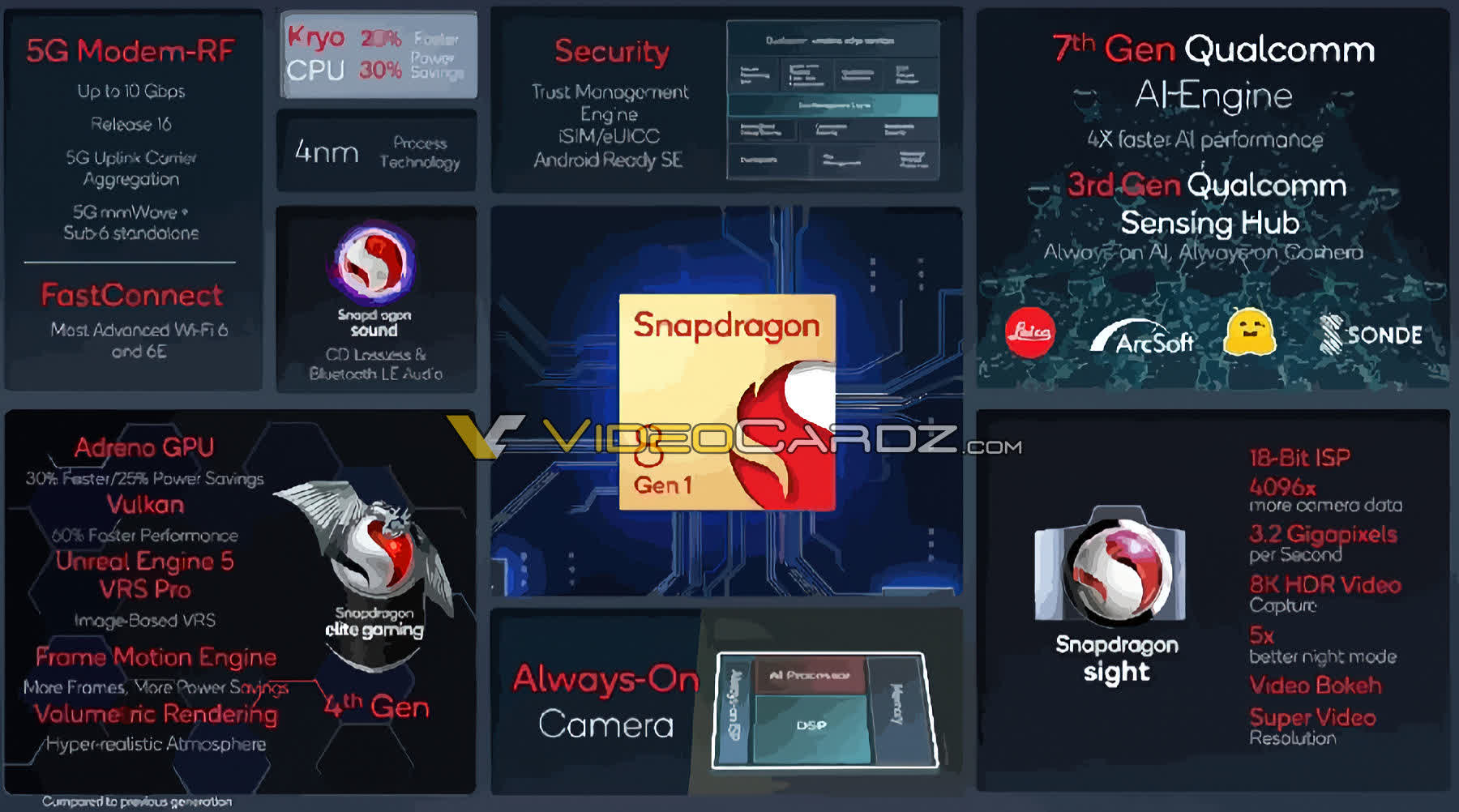The big picture: Qualcomm has commissioned Razer to build a developer kit based on its upcoming Snapdragon G3x platform. Unfortunately, the slides don't provide conclusive evidence as to exactly what we are dealing with, but Qualcomm is expected to supply some answers later today.

In the slides VideoCardz acquired, the portable is described as a new platform designed for innovation in handheld gaming. It will feature a 120Hz HDR OLED display and a 1080p webcam as well as a 6000mAh battery, DisplayPort over USB-C and 5G mmWave support. Wi-Fi 6E and Bluetooth 5.2 connectivity are also mentioned along with Snapdragon Sound and “incredible ergonomics and haptics.”
The publication further notes that based on other slides it received, the handheld in question could be advertised as a game streaming device.

VideoCardz also shared Snapdragon 8 Gen1 slides in the same post, but it’s not entirely clear if this is a separate product, or if the Snapdragon G3x is the name of the dev kit that’ll be powered by the Snapdragon 8 Gen1.
We also don’t know if the Razer handheld is strictly a dev kit, or if they are planning to pull a Microsoft and sell the machine directly to consumers. The latter would be an interesting route as it would compete with the Steam Deck and others that could eventually hit the market, while a dev kit would just serve as inspiration for other hardware makers.
Fortunately, we shouldn’t have to wait too much longer to get some clarity on the matter as Qualcomm is hosting its Snapdragon Tech Summit later this afternoon.
https://www.techspot.com/news/92432-razer-qualcomm-powered-handheld-dev-kit-leaked-blurry.html